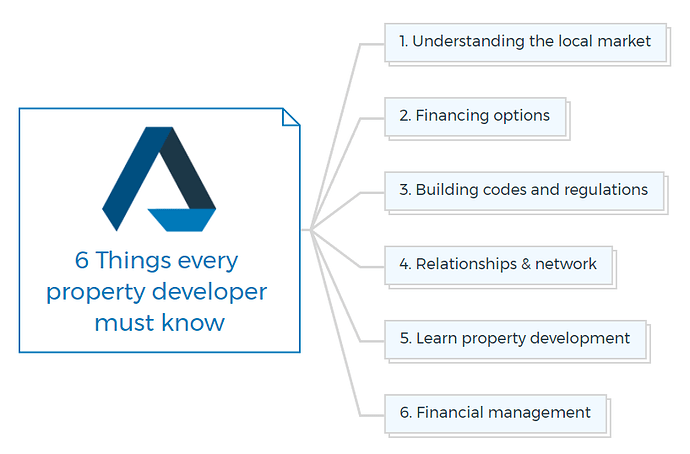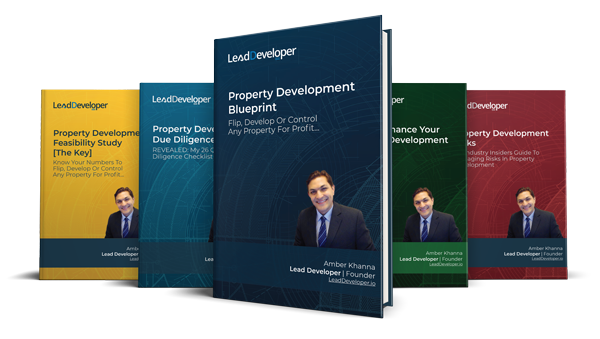6 Things a property developer must know
1. Understanding the local market
A property developer must deeply understand the local real estate market, including current trends, demand, and potential growth areas. This knowledge can help the developer decide on what type of properties to develop and where to develop them.
Take the time to figure out what the are risks and benefits of each type of development project. Different property development & investment strategies are needed for different real estate markets.
For example, an inexpensive market may be more stable, but it may also have less potential for making money. Affordable markets may have higher risks and more returns. And high end markets, although lucrative, can lose their values fairly quickly in a down turn.
Learning about the local markets and how to invest can help you plan & execute your goals.
You are missing out if you haven’t yet subscribed to our YouTube channel.
2. Financing options
Property development can be a capital-intensive endeavour, so a developer must be familiar with financing options, such as bank loans, joint ventures, and mezzanine financing.
You can start land purchases or construction of new development projects with different finance sources. Working with investors can give you more chances to make money with commercial properties or structure little or no-money down deals.
3. Building codes and regulations
Every property developer must know the local building codes and regulations in the area where they are developing.
These codes and regulations provide guidelines for safety and quality standards, design requirements and know-how on how to maximise the site’s potential.
Familiarising yourself with these rules will help ensure that your construction project meets all legal requirements, protecting you from any potential liability down the line.
It is crucial to stay up-to-date on any changes in building codes, as these can affect your project timeline and budget.
Additionally, a thorough understanding of the local regulations will help you plan for any possible delays or challenges that may arise during the construction process.
Property Development Books - “Starter-Pack”
18 Property Development Books To Get You Started Now
Includes 18 x detailed eBooks
✓ Property Development Checklist - 6 Pages
✓ How To Finance Your Property Development Project? - 13 Pages
✓ Property Development Team - 19 Pages
✓ Site Acquisition Process - 14 Pages
✓ The Ultimate Guide To Getting Started In Property Development - 42 Pages
✓ My Secret Property Development Process - 28 Pages
✓ How To Nail Your Next No Money Down Deal? - 29 Pages
✓ Industry Insiders Guide To Managing Risks In Property Development - 26 Pages
✓ How To Become A Property Developer? - 41 Pages
✓ Do You Have What It Takes To Be A Property Developer? - 12 Pages
✓ 7 Common Mistakes Made By Property Developers & How To Avoid Them? - 12 Pages
✓ 5 Reasons, Buy & Hold Property Investors Fail At Property Development - 16 Pages
✓ 10 Financial Mistakes Made By Property Investors & Developers - 54 Pages
✓ My 26 Question Due Diligence Checklist - 21 Pages
✓ Property Development 101: The Feasibility Study - 34 Pages
✓ Property Development 101: Construction Guide - 55 Pages
✓ Property Development Blueprint - 66 Pages
✓ Your Definitive Guide To Property Options - 36 Pages
4. Relationships & network
Property development is a highly collaborative process, and it’s essential to establish strong relationships with the architects, contractors, lenders, and local government officials involved in your project.
Having good relationships with these stakeholders will keep you in the loop on any changes or updates to the project timeline and budget.
Developing trust and a good rapport with the key stakeholders involved in your project will also help you identify potential risks or problems more quicker, allowing you to adjust accordingly.
Learn more about the property development team here.
5. Learn property development
Property development is a complex field and requires a great deal of knowledge and expertise to succeed.
Enrolling in the quick-start property development course can help you get started and gain insights into what it’s taken to become a real estate developer.
These courses will provide an overview of the different aspects of property development, such as zoning laws, construction processes, budgeting and financing options, etc.
Property Development Courses are a great way to gain the necessary knowledge and skills to become a successful property developer.
6. Financial management
Financial management is an essential skill for any property developer, as it can significantly affect the success of your project.
Developing a thorough understanding of budgeting, financing options, and cash flow forecasting will help you determine how much money you will need to complete your project.
Additionally, it is essential to be aware of potential tax liabilities or other costs that may arise during the development process.
Master the ins and outs of property development, and you’ll soon have tremendous potential for success.
Take your future into your own hands – make it a reality now!
Property Finance Made Easy
We specialise in Development funding | Commercial finance | Construction loans | Portfolio refinancing & Property investment loans in Australia.
Click Here to strategise with Amber




